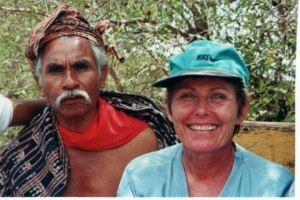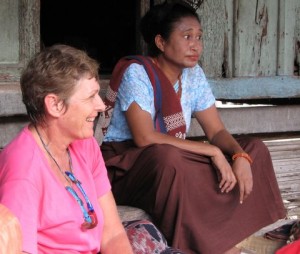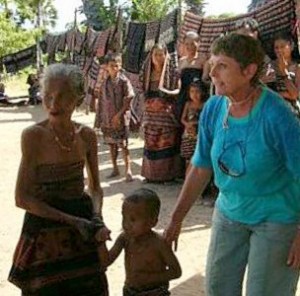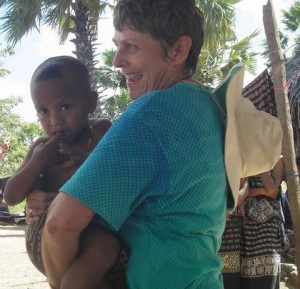By Genevieve Duggan, PhD student, Department of Sociology
If when I was 20 a fortune teller had told me what life had in store for me, I would have asked for my money back! At that time I was studying German and French languages to become a teacher in France. I did not learn English at school and was not curious about the people living on the other side of the Channel.
The good thing in life is that we do not know what it has in store for us. My life took a different turn after marriage and became quite nomadic, moving countries every four to five years; I learned English and studied at three different universities (Bahasa Indonesia at Atma Jaya University in Jakarta, anthropology in Heidelberg and Singapore). If my experience can be of any use I would be happy to share some thoughts.
First I married a Brit working in Germany, and started to learn English in order to communicate with my mother-in-law. When moving to another country and culture, I tried not to look back at what I was leaving behind, but embraced the new opportunities my new home country offered me, saying ‘yes’ to new experiences as new chances and did not try to isolate myself which is the easy alternative.
In Indonesia, I studied the language. This knowledge allowed me to access the culture and visit places off the beaten track. Curiosity was certainly what resulted in my meeting others. The desire to know and to understand what at first sight does not make sense is the engine for an interesting life. After moving to Germany for a second time I had the possibility to study anthropology at the age of forty. This brought about questions from friends like: ‘what is wrong in your life that you go back to university?’ Or ‘What is going wrong in your marriage that you are doing this?’ I did not sense something was going wrong. I was taking the opportunities that my nomadic life offered me learning the way while walking, and did not let these well meant comments of friends bothering me. When looking back, I realised that I did not worry when I happened to go against the flow since I saw a meaning in what I was doing. As I was not a ‘cappuccino anthropologist’, fieldwork in eastern Indonesia meant little comfort and much isolation, but also rich experiences.
When we moved to Singapore I had the opportunity to continue to study at NUS for my PhD. The varied nationalities of students at FASS Graduate School suited me very well. It is the most cosmopolitan university I ever studied at. After doing fieldwork, the writing phase of a thesis means months of relative isolation, but the pleasure of learning and playing Gamelan with the NUS singanglaras group every Wednesday night compensated for loneliness.
The most important thing in my life was to be curious. Critiques or lack of recognition from others did not disturb me since I saw meaning and value in what I was doing.



